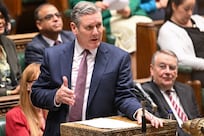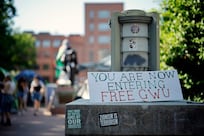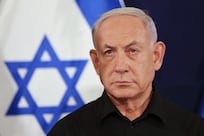Dubai’s announcement at last month’s green economy summit that the emirate’s 100MW solar park has brought down the cost of utility-size photovoltaic power to below $0.06 (22 fils) per kWh is a breakthrough that has vast potential. It will significantly increase the commercial attractiveness of solar power in the UAE and its neighbouring countries.
Dubai’s solar success follows a familiar pattern in the emirate’s historical development: the decision to invest in utility-size solar power was made before it was clear whether the technology would prove as cost-effective as it has and before a market for solar power existed. This way, Dubai positioned itself well in the world of energy to drive rather than follow trends.
Green economy has become a buzzword in international forums since the summit – and for good reason. Investment into the energy sector and renewable resources, green infrastructure, energy-efficient building regulations and waste-management can all contribute towards “green” growth.
This is economic development with an eye for the parallel protection of the environment and a nation’s biodiversity, and the sustainable use of non-renewable natural resources. Looking after our environment and natural resources can translate into long-term economic gain through cost savings. Technology transfer is a secondary benefit of planning carefully and designing the right policy framework. And for this country, like other fast-growing economies, energy and overall natural resource sustainability is not a luxury. The UAE alongside Qatar and Bahrain is one of the most freshwater-scarce countries in the world, according to a recent global list compiled by the World Resources Institute.
At the same time, water, as well as energy and electricity consumption rates per capita, are among the highest in the world and growing. This is the result of rapid industrial, economic and population growth as well as the stellar rise in living standards that place the country among the most prosperous nations in the world.
With some of the world’s lowest water and energy tariffs (although these were increased earlier this year), the UAE continues to price these valuable resources far below their actual cost.
The next logical step is to use the nation’s wealth in the service of sustainable economic growth, including in the areas of natural-resource use. There are many avenues into the more sustainable use of natural resources as the UAE’s economy and its living standards are expected to continue to grow.
Investment in green sectors, technologies and research not only offer prospects for a lower-carbon future and a reduction of the country’s reliance on its valuable oil and gas resources, but also for the creation of valuable green jobs.
Research by United Nations environment Programme, for instance, suggests that compared to power plants fuelled by fossil fuel, renewable energy generates more jobs per unit of installed capacity, per unit of power generated and per dollar invested.
Environmental efficiency is another area with vast potential in the UAE, both as an investment tool and a real opportunity for the creation of private sector opportunities in areas such as performance and productivity auditing.
Raising awareness among residents for energy and water conservation and waste reduction would not only be a valuable message to convey to the younger generations, but also be entirely in line with the country’s historical roots, looking back at the early environmental concern that has characterised the legacy of the late Sheikh Zayed.
Greening the UAE’s infrastructure and raising building standards is another increasingly important area that is likely to feature more prominently in future public-policy choices. Efficiency requirements in new buildings can significantly reduce energy consumption later on, particularly as air conditioning continues to account for a large chunk of electricity consumption by private households.
Infrastructure investments can help reduce energy consumption growth by offering alternative choices for public transport – buses and trains. Dubai’s Metro is a vastly significant piece of UAE infrastructure that has already had an enormous affect on commuter traffic.
Finally, protecting natural resources by sending the right pricing signals will also play an increasingly important role in managing demand. While for many consumers prospects of rising utility prices may not be a welcome one to start with, utility pricing is actually very important in providing incentives to reduce waste, and to invest in more efficient equipment that helps preserve the UAE’s valuable natural resources.
The net gain for the nation and its economy will be a more efficient use of resources, which will eventually prove critical in ensuring water and energy remains available plentifully and at affordable prices.
Laura El-Katiri is research fellow at the Oxford Institute for Energy Studies and an Abu Dhabi-based consultant





